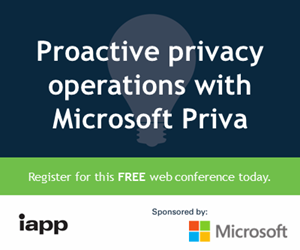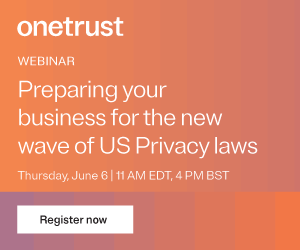Seasoned privacy professionals can all attest to the same claim: they didn’t go to school for this. Whether courses weren’t offered or privacy didn’t exist as it does today, it just wasn't an option back in the day. But that's changed. With the privacy profession now recognized as a growing and promising field by many, universities have taken notice. The next waves of the profession will no longer be able to harken back to a time when privacy, as a subject of study, did not exist.
Antony Haynes, director of cybersecurity and privacy law at the Albany Law School, said the school’s recently announced certificate program in cybersecurity and data privacy law is the first step in a strategic pathway designed to make Albany Law a leader in the cybersecurity arena.
"I think there is an emerging awareness among law schools that this is an important area of focus. When we launched our online master of science program in 2017, we were the only law school to have an online master of science legal studies in cybersecurity and data privacy.” Haynes added, “I’m confident that by 2020, there will be a lot of law schools in this area, and there will be a lot of competition.”
When Haynes moved the school’s master of science degree online, he said he noticed a pattern. “What we discovered after we made that available online is that a number of students were interested in taking a couple of courses in data security and data privacy, but not necessarily interested in pursuing an entire degree” in it. So the certificate offers students looking for an appetizer on data privacy and cybersecurity but not a full meal, “a rapid orientation of the field in a way that fits into their schedule and can be done relatively quickly.”
Tasked with developing the privacy and cybersecurity program, Haynes said, “We are very concerned that students don’t simply have an academic knowledge but that what they learn in class can be immediately applied to their current jobs.”
The certificate requires students to complete a total of nine credits through its distance-learning online format, and it also requires all students to complete a "Cybersecurity Law & Policy Seminar: Private Entities," which requires students to perform a graded real-world application of the teachings.
“As an example, students are required to conduct a high-level security policy review and assessment at a real-world entity. Because a majority of students are practicing professionals, they simply do this at their employer. For those who are not currently employed or whose employers simply will not let them do it, we will connect them with an entity who will," said Haynes.
Since all credits can also be applied towards the school’s Master of Science in Legal Studies in Cybersecurity and Data Privacy Law degree, the advantage of the certificate, as Haynes sees it, is that it allows students to get their feet wet, while also adding credentials to their resume.
“That flexibility is very powerful," he said.
Whether speaking with Albany Law students or with those he meets while traveling, he said students are expressing an interest in knowing more about Europe's shifting legal landscape.
“GDPR definitely plays a role. Students have expressed the desire to become knowledgeable in international law around data privacy and data security, and students in the JD program as well as students in the master's program have all expressed interest in knowing more about GDPR,” he said.
When asked what he sees for the future of the Albany’s Cybersecurity and Privacy Law Center, Haynes said, “Our hope is that we can provide unbiased perspective and advice to legislatures in Albany who are making difficult decisions around cybersecurity law and policy.”































Comments
If you want to comment on this post, you need to login.